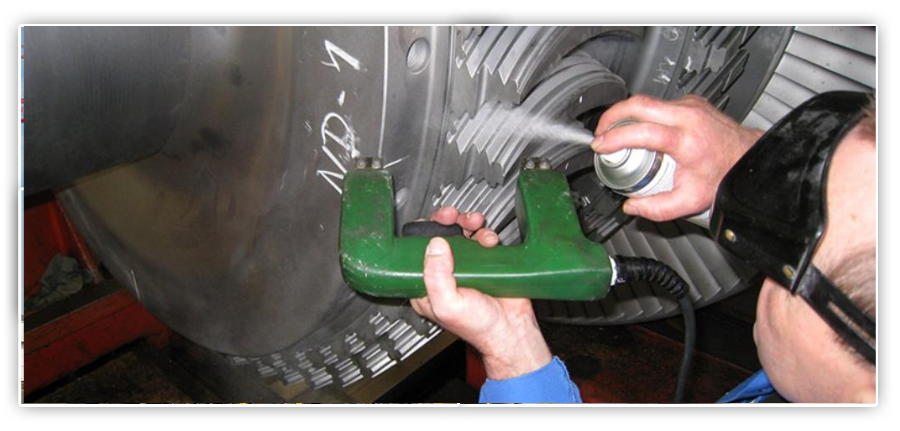MPI – Magnetic Particle Inspections

MPI – Magnetic Particle Inspections
This standard operating procedure outlines the methods for conducting both dry and wet magnetic particle testing on ferromagnetic materials to detect surface and sub-surface discontinuities. Performing magnetic particle inspections (MPI) both before and after load testing is crucial to identify any defects or cracks within welded areas, such as lifting points or stress points, ensuring the structural integrity of the components.
Magnetic Particle Testing (MPI) offers several advantages, making it a widely utilized non-destructive testing method:
- Speed and Portability: MPI can be conducted quickly and is easily portable, allowing for efficient on-site inspections.
- Cost-Effective: It is relatively affordable and does not require extensive pre-cleaning of the components.
- Versatility: MPI is suitable for inspecting both large and small objects, including those with complex shapes such as crankshafts and connecting rods.
- Immediate Results: Defects are visible right away, enabling prompt assessment.
- Surface and Near-Surface Detection: It effectively identifies surface and near-surface flaws, which are critical areas where stress concentrations occur.
- High Sensitivity: MPI can detect shallow and fine cracks, providing detailed insight into the condition of the material.